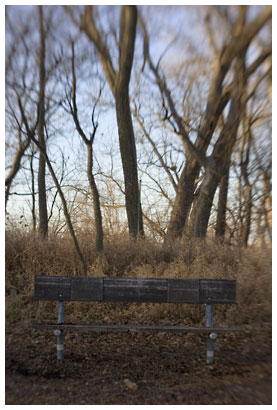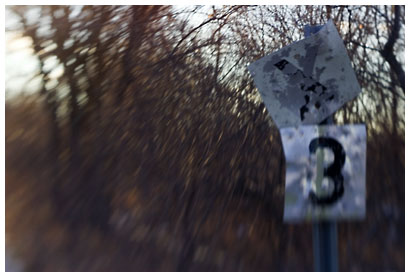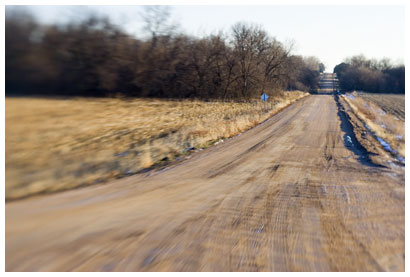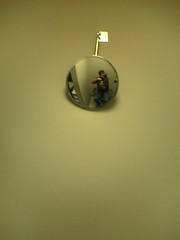Lensbaby 2.0
I had an early Christmas with my folks this year, and waiting for me under the tree was a Lensbaby 2.0. I've been having fun figuring out how to use it. Here's one of the first pictures I took with it:

One thing that's frustrating about the lens is that you can only change the aperture by physically adding small metal discs to the lens which are held in place with magnets. It's a bit cumbersome when you're out and about trying to take blurry pictures of trees. But I guess that's a limitation that comes with a flexible, bendy lens.

Also, I have no idea which aperture was in for a given picture. I'm so used to being able to check the exif data on a digital picture, that it's frustrating to loose that. I can't just load the picture and see what the aperture was set at. I might have to resort to carrying a notebook and jotting down aperture disk switches.

What I like about the Lensbaby is that you loose some control. While I usually try to have everything in focus, avoid motion blurs, lens flares, and all of the annoying accidents that can ruin a photo, they're all a part of the grammer of photography. That's why Holgas and Lomos are so popular—not because they take spectacularly clear photographs, but because so many happy accidents happen while you're using them. The Lensbaby is also an accident enabler.

I took these photos on a walk just outside of Lincoln, Nebraska last week.

One thing that's frustrating about the lens is that you can only change the aperture by physically adding small metal discs to the lens which are held in place with magnets. It's a bit cumbersome when you're out and about trying to take blurry pictures of trees. But I guess that's a limitation that comes with a flexible, bendy lens.

Also, I have no idea which aperture was in for a given picture. I'm so used to being able to check the exif data on a digital picture, that it's frustrating to loose that. I can't just load the picture and see what the aperture was set at. I might have to resort to carrying a notebook and jotting down aperture disk switches.

What I like about the Lensbaby is that you loose some control. While I usually try to have everything in focus, avoid motion blurs, lens flares, and all of the annoying accidents that can ruin a photo, they're all a part of the grammer of photography. That's why Holgas and Lomos are so popular—not because they take spectacularly clear photographs, but because so many happy accidents happen while you're using them. The Lensbaby is also an accident enabler.

I took these photos on a walk just outside of Lincoln, Nebraska last week.
